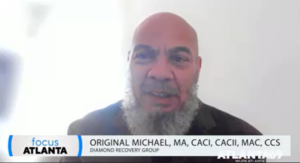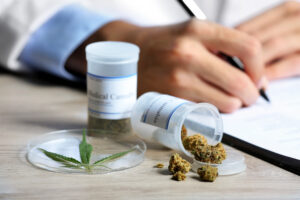The decision to get help for addiction is a life-changing move, to be certain. Once you or the person you love decides they are ready for help, it’s time to choose an addiction treatment center. Here is Diamond Recovery’s guide to choosing and vetting a treatment center.
Picking The Right Addiction Treatment Center
Choosing the right addiction treatment center is also a weighty decision. You want to do your level best for the person you love, but it’s easy to feel overwhelmed by the barrage of results when you type “drug rehab” into Google and hit ‘enter’. Where do you even begin to whittle down the list to the best candidates? How do you properly vet an alcohol and drug rehab to make sure they are up to snuff?
Below we have broken the process of choosing a good addiction treatment center into simple steps. This should help you know what elements to look for and decide which ones will be most important to you and your loved one. We also provide some red flags to look for when vetting a drug rehab. Finally, we will sum it all up in some useful lists to help you make sure you don’t overlook anything important.
Essentials To Look For In A Good Addiction Treatment Program
The key to picking the best substance use treatment program for your needs is to know what the essentials are. These will be the qualities you should expect in any good, reputable drug and alcohol rehab. From there you will want to add anything else you consider a “must-have” that isn’t already on the list we provided. Finally, you should consider your “wants”. These are the extra features that aren’t necessarily essential to recovery, but things you think your loved one could benefit from or enjoy.
State Licensing By The Department of Health
Right off the top, always choose a state-licensed substance use treatment center. Any facility that doesn’t have state licensing very likely will not offer appropriate medical care and won’t be subject to inspections — steer clear. Another feature that’s nice to have is accreditation or membership in one of the major MHSA and healthcare organizations. Two of the biggest are The Joint Commission (JCAHO) and the Commission on Accreditation of Rehabilitation Facilities (CARF). Call the Admissions Department and ask about the rehab’s licensing and if they have any other accreditation or certifications. You can also call the Department of Health and Human Services in your state (or the state the rehab is in, if it’s different) and ask them if they are licensed.
Safe, Medically Supervised Detox On Premises
For most people going to addiction treatment, a medical detox will be the first step. Believe it or not, many, if not most of the drug and alcohol rehabs out there do not operate their own medical detox on-site. Many use a third-party partner program. While this does not in any way indicate you won’t get good treatment, most people find it a lot simpler and less disruptive to their continuity of care if they can begin and end their addiction treatment experience in the same program. Discharging and transferring to different programs often entails packing up all your stuff and being driven across town only to go through an admissions process all over again.
Avoid that, if at all possible by choosing an alcohol and drug rehab that has its own detox facilities.
Dual-Diagnosis Treatment for Mental Health
Dual-diagnosis is a term you will probably encounter a lot during your search. A dual-diagnosis addiction treatment center has mental health specialists on staff and a psychiatrist to see patients. This means they are equipped to not only evaluate and treat addiction — they can also diagnose and treat things like depression, anxiety or trauma disorders, such as PTSD. This can be a total game changer for your loved one’s treatment experience. Nearly 70% of the people admitted for drug treatment have a co-occurring mental health disorder. Sadly, many are not diagnosed and treated for their secondary condition because they don’t get dual-diagnosis treatment. Undiagnosed and untreated mental health conditions are a major cause of relapse.
Levels of Care: What Do I Need to Know About Them?
The different phases of care in an addiction treatment center are known as the ASAM Levels of Care. Don’t let yourself get too hung on to the precise details of what each of them are, though. The important thing is to understand the difference between residential or inpatient treatment and the various forms of outpatient treatment. We’ll summarize each of the main levels of care below.
Medical Detox (Inpatient)
This is the most intensive level of care. Anyone who is drinking or using drugs daily and has physical withdrawal symptoms if they stop, will generally begin their treatment at this level of care. Medical detox is inpatient, which means patients stay at a medical facility and sleep at the detox center overnight where they have 24-hour medical supervision. This is key in order to keep them both safe and comfortable as any symptoms or issues that arise can be addressed immediately by nurses on duty.
Some circumstances that will usually warrant a medical detox include:
- Drinking alcohol daily (more than 1-2 drinks).
- A history of seizures, especially in withdrawal.
- Daily use of benzodiazepines like Xanax, Klonopin or Valium (especially if abused).
Residential Drug and Alcohol Treatment (Inpatient)
In a nutshell, residential drug treatment (sometimes called inpatient rehab) is similar to medical detox treatment in that they will sleep overnight at a center with 24-hour clinical staffing. The key difference is patients are through their detox period in residential, so they are better able to attend individual and group therapy and participate in activities. Inpatient care is most important during the medical detox phase, but it’s also important for any patient who might be a danger to themselves or who shouldn’t be without medical supervision around the clock. That said, people rarely require this level of care for their entire treatment.
Partial Hospitalization Program (Outpatient)
A Partial Hospitalization Program or PHP is often the step down in drug treatment after residential. The main difference with PHP is that patients no longer sleep overnight at a medical facility with 24-hour clinical staffing. At this stage that’s no longer necessary. They continue to attend group and individual therapy at the addiction treatment center during the day. But in their off-hours, they are free to return home, if they live locally. Many people in a PHP opt instead to stay in “supportive housing” which provides a safe, clean place to live with an apartment or home-like space that has rules and curfews but doesn’t have medical staffing.
Intensive Outpatient Program (Outpatient)
An Intensive Outpatient Program or IOP, is very similar to the PHP option above. The biggest difference is the number of hours per week. Whereas a partial hospitalization program is pretty much a full-time affair leaving little time for anything else – IOP is part-time treatment. Usually 2-3 days a week for a half-day. This makes it possible to return to work or school on a reduced schedule while continuing treatment.
Rehab Red Flags to Watch For
Finally, we want you to know the most common red flags and signs of a disreputable drug and alcohol rehab so you can avoid them. It should be said that the majority of rehabs are legitimate, but there are some bad or less reputable ones out there so it’s good to know the signs.
Red flags for drug and alcohol rehabs:
- Guarantees of lifetime recovery or exaggerated claims, like “95% success rates”.
- Offers to pay for your plane tickets or other enticements to come to that rehab.
- Claims that they will “waive” your insurance deductibles or out-of-pocket costs.
- Promises you won’t owe a penny after treatment and your insurance covers it all 100%.
- No clear photos of the actual facility, grounds, and accommodations on their website.
Diamond Recovery is Raising Awareness About Recovery
We hope you found this guide to choosing and vetting an addiction treatment center helpful!
If you or someone you love could benefit from treatment for a substance use disorder or you just have questions about how to choose a good drug and alcohol rehab, please give us a call at (844) 909-2525.





